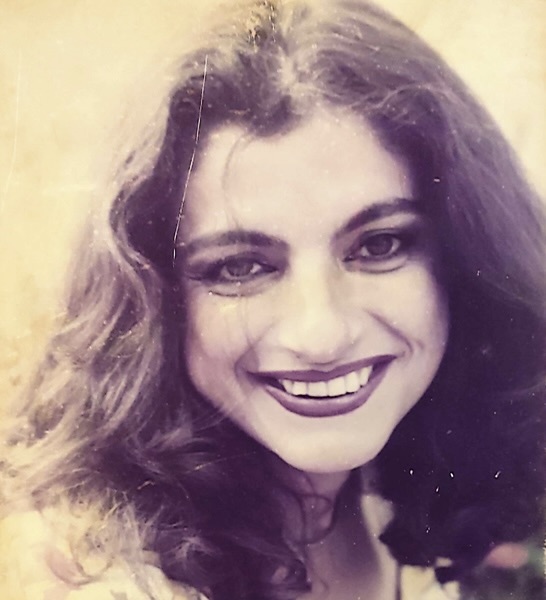Layaly Badr
Filed under: People, Animation Story Developer, Animator, Artist, Director, Filmmaker, Production Manager, Screenwriter, 1980s, 1990s, 2000s, 2010s, 2020s, Documentary, East Germany, Educational films, Egypt, Musical, Palestine, Palestine Liberation Organization, Papercut,

Nasr, Nahed. “Saying no.” Al Ahram, 28 June 2022, https://english.ahram.org.eg/NewsContentP/50/470785/AlAhram-Weekly/Saying-no.aspx.
Full Name:Layaly Badr
Occupation / Title:Animation Story Developer, Animator, Artist, Director, Filmmaker, Production Manager, Screenwriter
Date of birth:--/--/1950s
Birthplace:Jericho, West Bank, Palestine
Biography
Layaly Badr is a Palestinian-Jordinian screenwriter, artist, and animator. To this day she remains a role-model for women, children, and displaced Palestinians, utilizing film as a tool for education and advocacy (Nasr).
Family and early life
Badr’s success in the film industry as an Arab woman has not been without struggle. She was born in Ariha (also known as Jericho), a city in the Palestinian West Bank, in the mid-1950s. The Six-Day War of 1967 forced Badr and her family to relocate to Kuwait, and her early marriage at sixteen made obtaining an education extremely difficult (Nasr).
Badr had a natural propensity for storytelling, which prompted her older sister to suggest that she go into children’s writing. According to Badr, “My elder sister, the novelist, happened to be present one day while I was telling my daughter and her classmates a story and she said to me, ‘Layaly, you are a gifted storyteller.’ I hadn’t realised I had this talent, it was just that my daughter had so many questions, which I tried to answer by telling stories” (Nasr). This endeavour into writing marked the beginning of Badr’s career, and even more importantly, the taking charge of her own life.
Career outline
Badr’s film career began at the Palestinian Cinema Institution (PCI), where she was sent to East Germany to learn how to make animated films; PCI members wanted to start incorporating animation into their productions, but lacked the sufficient knowledge to do so (El-Hassan, 145–146). This is where she developed the animated documentary Al-tariq illa Filastin (The Road to Palestine) (1985). By the time she finished working on the film, the PCI had been looted and destroyed by Israeli military forces (El-Hassan, 146).
Badr has worked as managing director for popular TV entertainment networks in the Middle East, such as ART and Rotana, and performed consulting for Egyptian networks, such as Al Nahar and ON TV (“Layaly Badr – Amman International Film Festival”). Badr also launched a youth channel of her own, Art Teens, under the Art Children’s Channel (“Layaly Badr – Amman International Film Festival”).
Badr is an advocate for Arab film producers. In an interview with the Khaleej Times, she spoke out against the film market’s lack of anti-piracy laws and funding, believing that these challenges greatly stifle the growth of the industry (“Arab Film Producers ‘Need More Support’”).
She Badr is also a children’s author, having published two books titled Lobana Wal Qamar (Lobana and the Moon) and Nahr Wa Shajara Wa Asafeer (“Layaly Badr – BMAF”).
Personal style
Badr’s films have combined live action, animation, and musical elements together—some the first of their kind within the sphere of Arab and Middle Eastern film (“Layaly Badr – BMAF”).
Influences
Many of Badr’s more mature films are informed by politics. For instance Al-tariq illa Filastin (1985) highlights both the resistance and struggle of displaced Palestinians, while Chaos, This Is (2007) explores the issue of corruption in the Egyptian police force.
Badr is also interested in the planning and production of youth media. She believes that children, when encouraged to think critically and explore without limits, have the ability to change the world (Nasr).
Honors and awards
Al-tariq illa Filastin has received numerous awards, such as Best Complete Piece of Work for Children at the Arab TV Festival in Tunisia, the Pioneer Prize at the Damascus TV Festival, Special Mention at the Ispahan Children Film Festival in Iran, and the Golden Lorbeer—a German TV prize (“AoP”).
Filmography
[Show/Hide]
References:
“ARCHIVES OF POWER: The Palestinian Film Archive and the Erasure of History (abbr. AoP).” Eventive, https://watch.eventive.org/artearchive/play/65d77c9459bb79004f3a2a55/65d77b6821843e0088fa47f9. Accessed 22 August 2025.
“Arab Film Producers ‘Need More Support’.” McClatchy – Tribune Business News, 14 December 2009, ProQuest, http://myaccess.library.utoronto.ca/login?qurl=https%3A%2F%2Fwww.proquest.com%2Fwire-feeds%2Farab-film-producers-need-more-support%2Fdocview%2F455764063%2Fse-2%3Faccountid%3D14771.
El-Hassan, Azza. “Working with Visual Remains.” World Records Journal, vol 8, pp. 145–153, https://worldrecordsjournal.org/wp-content/uploads/2023/08/WR-08-13.pdf.
“Layaly Badr – Amman International Film Festival.” Amman International Film Festival, https://aiff.jo/industry-jury/layaly-badr/. Accessed 22 August 2025.
“Layaly Badr – BMAF.” BMAF, https://bfmaf.org/director/layaly-badr/. Accessed 22 August 2025.
Nasr, Nahed. “Saying no.” Al Ahram, 28 June 2022, https://english.ahram.org.eg/NewsContentP/50/470785/AlAhram-Weekly/Saying-no.aspx.
